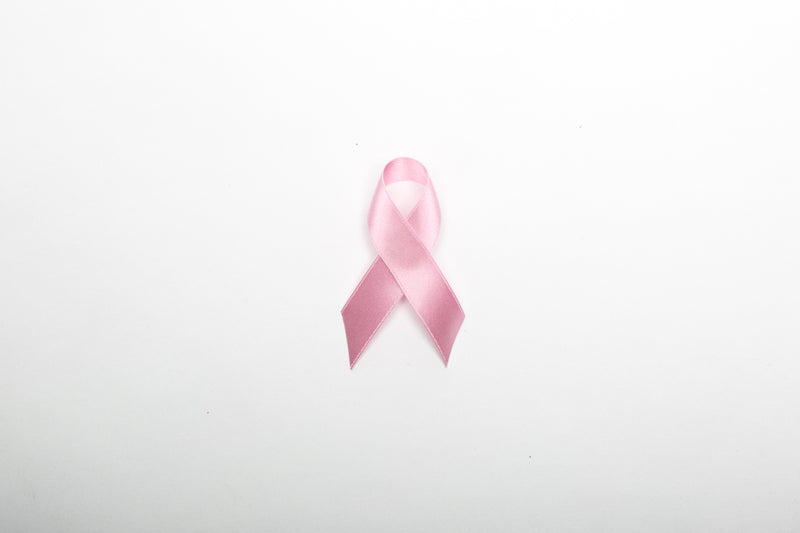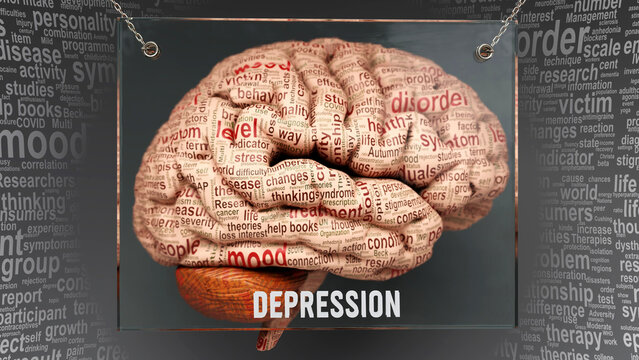Going for a mammogram can be an anxiety-inducing experience for many women. The fear of the unknown, discomfort, and potential diagnosis can cause distress before, during, and after the procedure. As a counsellor who has worked with numerous women facing this challenge, I have witnessed first-hand the impact that mammogram anxiety can have on mental health. However, there are ways to cope with this fear and make the experience less daunting. In this blog post, I will share some tips and insights from my counselling practice that can help you navigate through your mammogram appointment with greater ease.

Understanding Mammogram Anxiety: What It Is and Why It Happens
Mammogram anxiety is a common experience for many women who undergo breast cancer screening. It can be triggered by fear of the unknown, discomfort and pain during the exam, or previous trauma related to breast health. Many women may postpone their mammogram appointments due to this anxiety, which can have serious implications for early detection of breast cancer.
Understanding the root causes of mammogram anxiety can help individuals better cope with it. Fear-based thoughts that arise as an emotional response to stress are typically at play here – such as “what if they find something?” and “I’m not prepared for bad news.” Overcoming these negative thought patterns is crucial in managing your emotions around mammograms.
Moreover, being aware of one’s physical reactions during a mammogram test will also make you feel more in control. Keeping track of breathing patterns and practicing relaxation techniques beforehand can minimize feelings of panic or hyperventilation during screening sessions.
Remember that seeking support from your loved ones or mental healthcare professionals is always available if necessary – there’s no need to face this alone!

Coping Strategies for Mammogram Anxiety: Tips from a Counsellor
Mammogram anxiety can be very overwhelming and may lead to some women avoiding their screening appointments altogether. As a counsellor, I often recommend that clients acknowledge their fears and anxieties around mammograms instead of suppressing them. Talking to someone about what’s causing your stress may help alleviate the intensity of negative emotions that one might feel.
One way to cope with mammogram anxiety is by engaging in relaxation techniques like deep breathing exercises when preparing or waiting for your appointment. This technique helps distract from negative thoughts that increase anxiousness.
Reframing self-talk such as “this is going to hurt” into positive affirmations like, “I’m taking control of my health” or similar phrases are encouraged. Cognitive Behavioral Therapy (CBT) techniques have proven useful in addressing these types of thinking patterns.
Seeking support from family or friends during this time would also be beneficial; it could include asking them for company during appointments, sharing how you’re feeling, but also talking through feelings before an upcoming scan if required.
Please note – self-care should not replace medical advice nor necessary medical tests regularly prescribed by healthcare professionals.

Mindful Breathing Techniques to Manage Mammogram Anxiety
Mindful breathing is a powerful technique that can help manage mammogram anxiety. By focusing on your breath, you can calm your mind and reduce physical symptoms of anxiety. To practice mindful breathing, find a quiet place where you won’t be disturbed. Sit comfortably with your back straight and close your eyes. Take a deep breath in through your nose, hold it for a few seconds, and then exhale slowly through your mouth. Repeat this process several times, focusing on the sensation of the breath moving in and out of your body. If your mind starts to wander, gently bring it back to the breath. With regular practice, mindful breathing can become a useful tool for managing anxiety not just during mammograms but in other areas of life as well.
The Power of Positive Affirmations in Overcoming Mammogram Anxiety
Positive affirmations are a powerful tool in overcoming mammogram anxiety. Repeating simple, positive statements to oneself can help turn negative thoughts and feelings into more positive ones. Some examples of affirmations that might be helpful include: “I am strong and resilient,” “I trust my body to take care of me,” and “I am capable of handling whatever comes my way.” These statements can help combat the fear and uncertainty associated with mammograms by reinforcing a sense of control and self-assurance.
It’s important to remember that positive affirmations aren’t meant to replace medical treatment or counseling, but rather they’re one tool among many for managing difficult emotions. It may also be helpful to work with a mental health professional who understands your specific concerns around breast cancer screening. Together you can come up with personalized strategies for coping with anxiety before, during, and after your mammogram appointment.

Overcoming Negative Thoughts Associated with Mammograms
Negative Thoughts can be a major obstacle in managing mammogram anxiety. It’s common to experience thoughts like “What if they find something?” or “I can’t handle the pain.” These thoughts can trigger a cascade of physical symptoms like sweating, racing heart, and nausea. One way to overcome these negative thoughts is to challenge them with evidence-based reasoning. For example, if you’re worried about the pain, remind yourself that it only lasts for a few seconds and that it’s worth it for the peace of mind that comes with knowing you’re healthy. Another technique is to practice mindfulness and focus on the present moment rather than worrying about what might happen in the future. By acknowledging your negative thoughts and challenging them with positive self-talk, you can reduce your anxiety and feel more confident about your mammogram appointment.

Dealing with Physical Symptoms of Mammogram Anxiety: Practical Solutions
Understanding the Physical Symptoms of Mammogram Anxiety: Identifying Common Responses
Mammogram anxiety can manifest itself physically in a variety of ways. Some common physical symptoms include nausea, dizziness, rapid heartbeat, sweating and muscle tension. It is understandable to experience these responses as the process often involves discomfort and fear about the possibility of finding something abnormal. Recognizing that these responses are normal reactions can be helpful in managing them effectively. Identifying your individual physical responses to mammograms can also allow you to develop personalized coping strategies that work best for you.
Strategies for Managing Physical Discomfort During a Mammogram: Tips and Techniques
During a mammogram, it’s common to experience physical discomfort and pain. To manage these symptoms, there are several strategies you can use. Deep breathing can help reduce muscle tension and promote relaxation during the exam. It’s also helpful to communicate with your radiology technician about any areas of tenderness or pain so they can adjust the equipment accordingly. Visualizing calming scenes or practicing guided imagery techniques can also help distract from uncomfortable sensations during imaging. Additionally, wearing loose-fitting clothing on the day of your appointment and taking over-the-counter pain medication before the procedure may alleviate some physical discomfort associated with mammograms.
Coping with Negative Thoughts and Emotions During a Mammogram: A Mind-Body Approach
One effective way to cope with negative thoughts and emotions during a mammogram is to use a mind-body approach. This involves focusing on your breath and using relaxation techniques to calm your mind and body. Deep breathing can help slow down your heart rate and reduce feelings of anxiety. You can also try visualization techniques, such as imagining yourself in a peaceful place, to distract yourself from any discomfort or negative thoughts. Remember that it’s normal to feel anxious during a mammogram, but by using these practical solutions, you can manage your physical symptoms and feel more at ease during the screening process.
Post-Mammogram Self-Care: How to Recover Physically and Mentally
After getting a mammogram, it’s important to prioritize self-care. Mammogram anxiety can cause physical symptoms such as soreness and tenderness in the breasts or muscle tension throughout the body. To alleviate these symptoms, try applying heat or cold compresses, taking over-the-counter pain medication, and doing gentle stretches or yoga poses. Emotionally speaking, give yourself permission to rest and recover – take time off work if possible and engage in activities that help you relax and de-stress such as listening to music or reading a book. Remember that self-care is crucial for both your physical and mental well-being during this time.

How Family and Friends Can Support Those Coping with Mammogram Anxiety?
It can be challenging to deal with mammogram anxiety alone. Family and friends play a crucial role in providing emotional support during this time. Encourage them to listen, empathize and offer practical assistance like accompanying you to the appointment.
Those who find it difficult opening up about their fears might benefit from joining support groups. Sharing similar experiences with other women going through the same thing can provide comfort and relieve tension.
Family members can also join these support groups or counseling sessions specifically designed for people whose loved ones are undergoing breast cancer screening tests. They learn how best to communicate with someone feeling nervous or worried about mammograms.
Remember that everyone’s experience is different, so try not to compare your feelings of anxiety with others’. The most important thing is that you get the appropriate medical care while addressing any signs of mammogram anxiety that arise.

Therapies Available for Helping People Deal with Their Fears Around Breast Cancer Screening
Understanding Mammogram Anxiety: Causes and Symptoms
Mammogram anxiety is a common experience among women undergoing breast cancer screening. The fear of the unknown, concerns about pain and discomfort during the procedure, and worries about receiving a positive diagnosis can trigger feelings of anxiety in many patients. Some people may have had negative experiences during previous mammograms, which can exacerbate their fears.
Symptoms of mammogram anxiety can include palpitations, sweating, trembling, shortness of breath or difficulty breathing, nausea or vomiting. These symptoms can be intensely distressing for those experiencing them.
Therapies such as cognitive-behavioral therapy (CBT), relaxation techniques like meditation or mindfulness training are effective in helping alleviate these anxieties. CBT helps individuals identify negative thought patterns that contribute to their anxious responses while relaxation techniques help with building resilience towards stressful situations by promoting deep relaxation and calm state-of-mind on demand.
Coping Strategies for Mammogram Anxiety: Techniques to Try at Home
Some effective coping strategies for managing mammogram anxiety include practicing relaxation techniques such as deep breathing exercises, meditation, and yoga. Engaging in regular physical activity can also help to reduce stress and anxiety levels. Cognitive-behavioral therapy (CBT) is a type of talk therapy that can help individuals identify and change negative thought patterns that contribute to their anxiety. Seeking support from friends, family, or a therapist can also be beneficial in managing mammogram anxiety. Remember to focus on the benefits of breast cancer screening and remind yourself that the procedure is quick and relatively painless.
Professional Support for Mammogram Anxiety: Therapies Available for You
Professional support is available for those struggling with mammogram anxiety. Therapies such as cognitive-behavioral therapy (CBT) and exposure therapy have been proven effective in helping patients overcome their fears surrounding breast cancer screening. CBT focuses on identifying and changing negative thought patterns, while exposure therapy gradually exposes the patient to the feared situation, allowing them to confront and ultimately overcome their fear. Other therapies such as relaxation techniques or hypnosis can also be helpful in managing symptoms of anxiety during mammograms. It’s important to remember that seeking professional help is a sign of strength and can provide valuable tools and support for those dealing with mammogram anxiety.
Moving Forward: How to Overcome Mammogram Anxiety and Take Control of Your Health
If you’re struggling with mammogram anxiety, it’s important to know that there are therapies available to help you cope. Cognitive-behavioral therapy (CBT) is a type of talk therapy that can be effective in addressing fears and negative thoughts associated with breast cancer screening. CBT can help you identify and challenge negative beliefs, develop coping strategies, and build confidence in your ability to manage anxiety. Another option is exposure therapy, which involves gradually exposing yourself to the source of your fear in a controlled environment. This can help desensitize you to the experience and reduce anxiety over time. With the right support and resources, you can overcome mammogram anxiety and take control of your health.

Best Practices for Preparing Yourself Mentally Before Your Next Scheduled Appointment
Preparing Yourself Mentally Before Your Next Scheduled Appointment
If you’re experiencing anxiety before your next mammogram, here are some techniques to help calm your nerves. First, find a quiet and relaxing space where you can sit comfortably. Then, practice deep breathing exercises and relaxation techniques like progressive muscle relaxation or guided imagery.
It’s also important to remember that the medical professionals performing your mammogram are trained to make the experience as comfortable as possible for you. Don’t hesitate to voice any concerns or questions you may have beforehand. In addition, consider bringing a supportive friend or family member along with you.
Visualizing a positive outcome can also be helpful in reducing anxiety. Imagine yourself in the exam room feeling calm and relaxed while receiving good news from the doctor about your mammogram results.
Finally, try not to schedule other stressful events immediately before or after your appointment so that you can focus on taking care of yourself physically and mentally during this time. Remember that self-care is essential in managing anxiety related to breast cancer screening tests like mammograms.
How Often Should You Get a Mammogram? A Guide to Help You Make the Right Decision
Mammogram frequency is a highly debated topic in the medical community. The American Cancer Society recommends that women with an average risk of breast cancer start screening mammograms at age 45. However, others argue that starting at age 40 may lead to earlier detection and better outcomes. Women with a higher risk of breast cancer, such as those with a family history or genetic mutations, should talk to their healthcare provider about starting screenings earlier.
The frequency of mammograms also varies depending on personal factors like age and health history. Some experts recommend annual screenings for women over 50 while others suggest every two years may be sufficient.
Ultimately, the decision on how often to get a mammogram should be made between you and your healthcare provider based on individual risk factors and preferences. It’s important to have regular conversations about breast cancer screening so that decisions can be made collaboratively and any concerns addressed in advance.
In conclusion, mammogram anxiety is a real and understandable fear that many women experience. However, it’s important to remember that regular breast cancer screening can save lives. Whether through deep breathing exercises or positive affirmations, there are various coping strategies available for those dealing with mammogram anxiety. It’s also essential for friends and family to provide support during this stressful time. Seeking therapy or counseling may also be beneficial in addressing underlying fears and anxieties around breast cancer screening. By adopting healthy coping mechanisms, being prepared mentally before appointments and making informed decisions about how often to get screened, women can help manage their mammogram anxiety while prioritizing their overall health and well-being.
FAQs
Q: Who should get a mammogram and when?
A: Women over 40 should get a mammogram annually.
Q: What can cause anxiety during a mammogram?
A: Fear of pain, uncertainty of results, and embarrassment.
Q: How can anxiety during a mammogram be reduced?
A: Practice deep breathing, communicate with technologist, bring a support person.
Q: Who should I talk to about my mammogram anxiety?
A: Talk to your doctor, technologist, or a mental health professional.
Q: What if I have a fear of mammograms due to past trauma?
A: Speak with your doctor about alternative screening options.
Q: How can I overcome embarrassment during a mammogram?
A: Remember that the technologist performs mammograms daily and it’s a routine exam.
